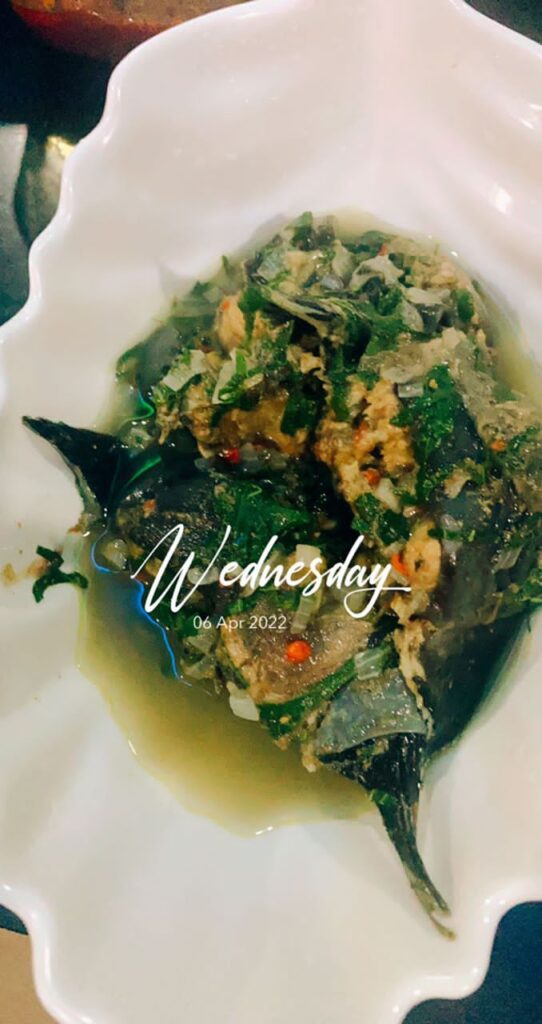
Nigeria, a country in West Africa blessed with rich human and natural resources, is a place to be. I am saying this not just because we are indeed blessed with natural resources, but also because we are blessed with rich culture and tradition. Several tribes and cultures abound in Nigeria, with our different delicacies not left out as well.
Nigerian cuisine is a diverse and flavorful cuisine that reflects the country’s rich cultural heritage and natural resources. Nigerian cuisine is based on a variety of staple foods such as cassava, yams, plantains, and rice, as well as a wide range of spices, herbs, and vegetables. Nigerian cuisine is known for its bold flavors and aromatic spices, which not only make it delicious but also have a range of health benefits.
Many Nigerian dishes are rich in nutrients, vitamins, and minerals that are essential for good health. For example, cassava is a good source of carbohydrates and dietary fiber, while yams are rich in vitamins A and C, potassium, and dietary fiber. Other common ingredients in Nigerian cuisines, such as peppers, onions, and tomatoes, are rich in antioxidants and anti-inflammatory compounds that can help protect against chronic diseases.
Additionally, Nigerian cuisine often incorporates traditional cooking techniques such as slow cooking, which can help preserve the nutrients in the ingredients. Traditional Nigerian dishes are also often made from scratch using fresh ingredients, which means they are free from preservatives and additives that can be harmful to health.
Reasons Nigerian Cuisine is Considered a Healthy Choice
Nigerian cuisine is known for its vibrant flavors and use of fresh, whole ingredients, making it a healthy choice for many reasons. Here are some of the reasons why Nigerian cuisine can be considered a healthy choice:
- Use of fresh, whole ingredients: Nigerian cuisine is traditionally made with fresh, whole ingredients such as vegetables, fruits, whole grains, and lean proteins. These ingredients are packed with essential vitamins and minerals that are important for overall health.
- Emphasis on vegetables: Nigerian cuisine places a lot of emphasis on vegetables, which are an important part of a healthy diet. Many Nigerian dishes are made with a variety of colorful vegetables such as spinach, okra, eggplant, tomatoes, and peppers.
- Limited use of processed foods: Nigerian cuisine is not heavily reliant on processed foods, which can be high in unhealthy fats, sugars, and preservatives. Instead, many dishes are made from scratch using fresh ingredients, which can help to reduce the intake of unhealthy additives.
- Variety of spices and flavors: Nigerian cuisine is known for its bold flavors and use of spices, which can add flavor without the need for excessive salt or sugar. Many spices used in Nigerian cuisines, such as ginger, garlic, and turmeric, also have health benefits.
- Emphasis on balance: Nigerian cuisine emphasizes the importance of balance in the diet, with meals typically including a combination of carbohydrates, proteins, and fats. This can help to provide a well-rounded and nutritious meal.
Health Benefits of Nigerian Cuisine
Nigerian cuisine health benefits.
Here are some of the benefits of Nigerian cuisine:
Rich in Nutrients
Nigerian cuisine typically includes a variety of fruits, vegetables, and grains, which are all rich in essential nutrients such as vitamins, minerals, and fiber.
Supports Weight Management
Traditional Nigerian dishes are often low in calories and high in fiber and protein, which can help keep you feeling full and satisfied for longer periods, supporting weight management efforts.
Promotes Heart Health
Nigerian cuisine is often prepared using healthy fats such as olive oil, coconut oil, or palm oil, which contain monounsaturated and polyunsaturated fats that can help improve cholesterol levels and lower the risk of heart disease.
Boosts the Immune System
Nigerian cuisine often includes ingredients such as garlic, ginger, turmeric, and chili peppers, which are all known to have anti-inflammatory and immune-boosting properties.
Supports Digestive Health
Nigerian cuisine often includes fermented foods such as ogi, which are high in probiotics that can help improve digestion and support gut health.
Reduces Inflammation
Nigerian cuisine includes a variety of spices and herbs such as cumin, coriander, cinnamon, and turmeric, which have anti-inflammatory properties that can help reduce inflammation in the body.
Some Healthy Nigerian Cuisine
Nigerian cuisine is diverse and can be healthy when prepared with fresh, whole ingredients and balanced in nutrients. Here are some examples of healthy Nigerian cuisine:
- Jollof rice: a popular Nigerian rice dish made with rice, tomatoes, peppers, onions, and spices. It can be made with vegetables and lean meats like chicken or fish.
- Egusi soup: a nutritious soup made with ground melon seeds, vegetables, and spices. It can be served with brown rice or plantains for a balanced meal.
- Moi moi: a steamed bean cake made with black-eyed peas, peppers, onions, and spices. It is high in protein and can be served as a main dish or snack.
- Efo riro: a vegetable soup made with spinach, tomatoes, peppers, onions, and protein like chicken or fish. It is rich in vitamins and minerals and can be served with brown rice or yams.
- Grilled fish or chicken: Nigerian cuisine features grilled meats and fish, which are high in protein and low in fat. It can be served with a side of vegetables or a salad for a balanced meal.
Conclusion
Overall, Nigerian cuisine is a delicious and nutritious cuisine that offers a range of health benefits. By incorporating more Nigerian dishes into your diet, you can enjoy the flavors of this rich and diverse cuisine while also reaping the health benefits.
Just in case you need some training as regards being able to blend these healthy dishes to achieve the desired result and also learn both local and international dishes, why not join the league of smart students who have taken the bull by the horn and started their training at Twim Institute?
For further inquiries, call or send a message to +2349033279205.




